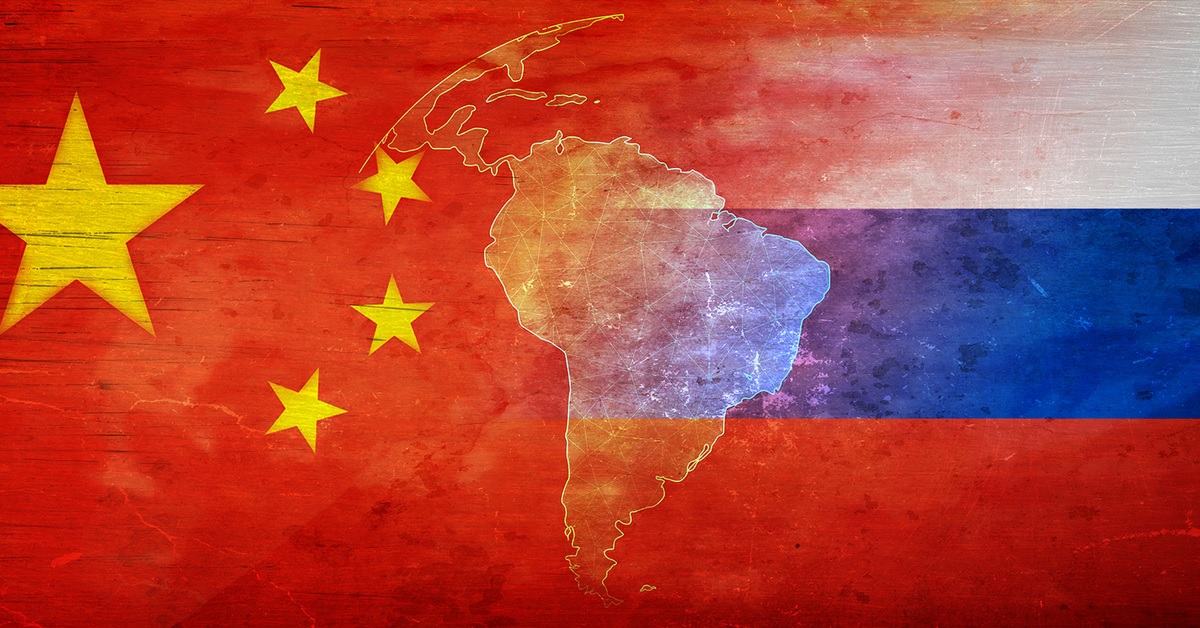According to experts, China and Russia have increased their cyber presence in Latin America, using cyber tools such as disinformation, cybercrime, and election interference to pursue their regional goals.
Disinformation campaigns via state-run Spanish-language social media platforms, cyberattacks such as those perpetrated by the Russian Conti ransomware group against Costa Rican and Peruvian government agencies in recent months, and the transfer of cybersecurity expertise and infrastructure are some examples of their increasing cyber operations.
According to the U.S. magazine The National Interest, Venezuela is a case in point, which calls the country a “Chinese and Russian cyber center on America’s doorstep.”

For example, the authoritarian regime’s interest in China’s national ID system dates back to 2008, when then-socialist leader Hugo Chávez began making plans to emulate Chinese technology and its tracking and surveillance capabilities.
In 2016, three years after Chávez’s death, the regime of Nicolás Maduro unveiled the “Carnet de la Patria,” or Homeland Card, an identity card modeled on the Chinese one.
The Chinese telecommunications company “ZTE Corporation,” contracted by Venezuela for about seventy million U.S. dollars, sent experts to the Latin American country to develop and implement the technology.
“There is growing evidence that the [Venezuelan] regime is using the Carnet de la Patria to control the population. For example, numerous testimonies state that the Carnet de la Patria was used to verify citizens’ votes in the 2017 and 2018 elections,” the Organization of American States “OAS” said in a report on the Venezuelan migrant and refugee crisis in the region.
Russia has also provided the Maduro regime with cybersecurity expertise, The National Interest reports.
In March 2019, Reuters reported that about one hundred Russian military personnel, including cybersecurity personnel, were dispatched to Venezuela to reportedly help restore the country’s power grid after massive blackouts that the regime blamed on cyberattacks.
However, the presence of cybersecurity personnel strongly suggests that their mission may have been to assist the regime in monitoring and protecting its cyber infrastructure.
ATTEMPT AT GLOBAL PROJECTION
If China and Russia are exporting their cyber know-how to Latin America, then with it comes their vision of the Internet, according to the Council on Foreign Relations, a U.S. think tank specializing in international relations, in a blog discussing the export of “ZTE” surveillance technology to Venezuela.
“Exporting surveillance technology (and know-how) to other countries is a way to strengthen the sovereign and controlled vision of the Internet,” wrote Justin Sherman, a cybersecurity policy fellow at the think tank “New America.”
Chinese and Russian cyber know-how on Latin American soil, “National Interest” continued, is a threat to the United States, the region, and the world.
In late 2019, for example, then-Colombian Vice President Marta Lucía Ramírez accused Russia and Venezuela of fomenting protests through social media campaigns, The New York Times reported.
In 2017, during the Catalan separatist crisis in Spain, it was found that a large amount of foreign social media content meant to reinforce division resulted from Russian disinformation from Venezuela, U.S. news site The Daily Beast reported.
ALLIANCE
“There are signs that in the last two decades, Venezuela has moved closer to China and other countries such as Russia, Iran, and Syria, both in the field of commercial, economic and political cooperation and in the field of cybersecurity,” said Roberto Uebel, a Brazilian scholar at the South American Institute of Politics and Strategy and professor of international relations at the School of Advertising and Marketing in Porto Alegre in the state of Rio Grande do Sul.
For Uebel, this has to do with what he calls cyber geopolitics, that is, “geopolitics of virtual space,” which means that today if there is some cooperation between countries, it is very likely that this cooperation will include the cyber domain because this is a concern of all countries.
“The secretary general of the United Nations himself said at the General Assembly last September [2021] that a hacker attack will trigger the next major international conflict,” Uebel concluded.
With information from Latina Press

